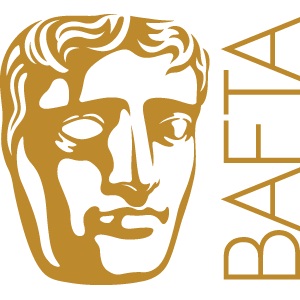
The glitz and glamour of the BAFTA Awards every year attracts a lot of attention, but it's really only a small part of what the British Academy of Film and Television Arts does. Here we look at just some of the things they do as a charity.
The glitz and glamour
Most of us love to see famous stars picking up awards and attending glamorous red carpet film premieres, but did you know BAFTA is in fact a charity? There’s a whole other side to what they do that seems almost hidden behind the mask that is their logo.
Charitable work accounts for at least half of BAFTA’s activity, and recently they have started to do more with this part of their organisation. This includes plenty of online services on their website aimed at helping children, students and career-starters, as well as professionals in the industry.
Their main aim is to build stronger links between the UK’s creative industries and the public, bringin greater opportunities and enjoyment of the excellent work that British film talent creates. Each year, BAFTA delivers over 200 public events designed to get people closer to the film, TV and video game industries by helping them improve their critical skills and broaden their horizons.
A new generation of gamers
In 2010, BAFTA launched the BAFTA Young Games Designers scheme. Teams of 11-16 year olds from across the UK are invited to attend workshops in their local areas where games developers help them create their own video games. From these entries a winning team is chosen and gets to develop a prototype of their game, and are also offered work experience placements in a professional games studios. The aim of the competition is to encourage young people to imagine themselves having a creative role in one of the biggest entertainment industries in the world, rather than just seeing themselves as passive consumers.
Giving a foot up
BAFTA have a variety of programs to help younger people in the industry. These include internships, mentorships, scholarships, awards that give recognition to young people just entering the industry, professional support forums, and a program called Breakthrough Brits which supports and celebrates new talent by entering selected industry newcomers into a year-long mentoring and guidance programme to help build their career.
Behind the scenes
BAFTA has also also previously partnered with the Institute of Contemporary Arts (ICA) to run masterclasses, where skills such as editing, hair and make-up, music composition and title design were taught. Experts were on hand to share their tips and provide insights, including composer Martin Phipps, hair and make-up artist Jacqueline Fowler and visual effects creator Gareth Edwards. Similarly, a series of screenwriters’ lectures put the hidden talent behind the films in the spotlight. Professionals shared their scriptwriting experiences and talked about the role of writers in film-making, with speakers including Simon Beaufoy (Slumdog Millionnaire, 127 Hours), Aline Brosh McKenna (The Devil Wears Prada) and Sir David Hare (The Hours, The Reader).
Preserving history
The Academy has a long history of its own, being founded in 1947 with their first chairperson the film director David Lean. Their aim was "to recognise those who had contributed outstanding creative work towards the advancement of British film." Nowdays they continue that work not only in encouraging new talent and recognising achievements, but by celebrating the past and preserving British film heritage. This includes an extensive BAFTA photography collection, special Heritage Screenings that aim to bring British film and TV classics to new audiences, and a tribute area of their website which publishes profiles of notable individuals in the film, television and video games industries who have passed away.
BAFTA supports, develops and promotes the art form of the moving image throughout the UK. Join their mailing list for regular updates on live events, webcasts and competitions, or you can donate to them via their Charity Choice page to help them continue their good work!


